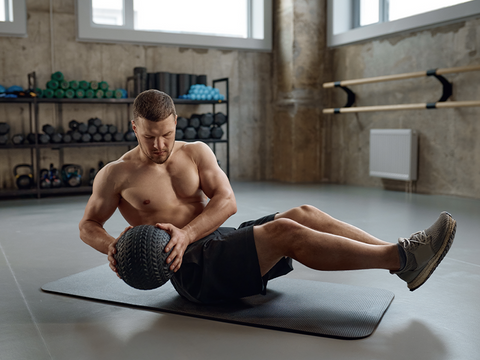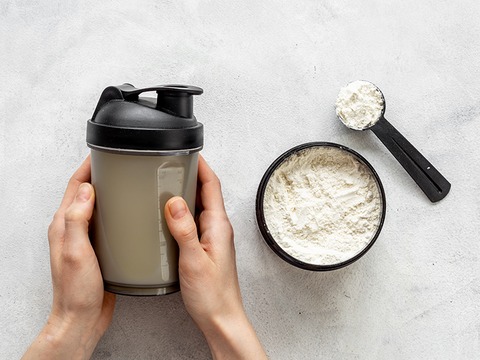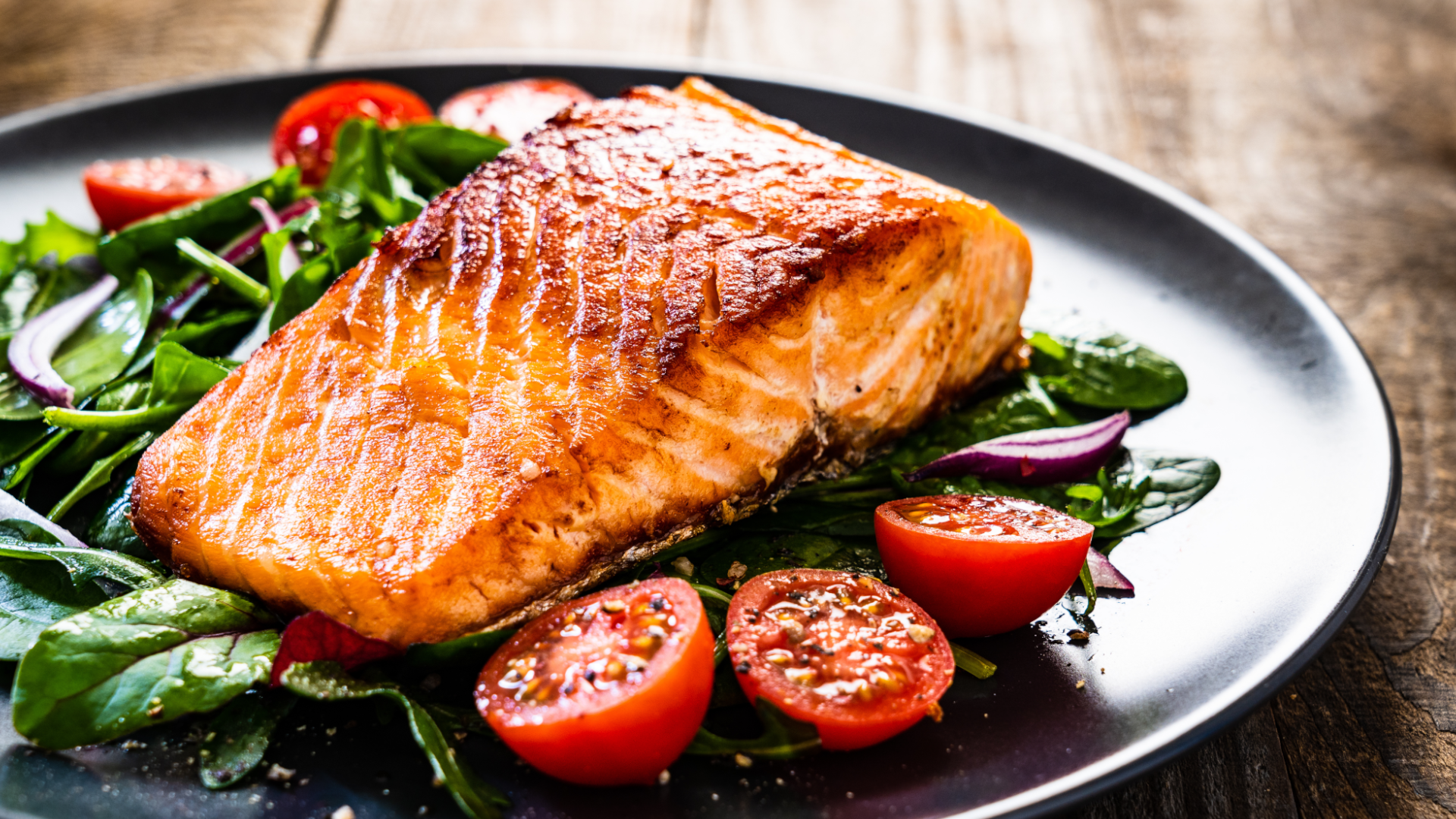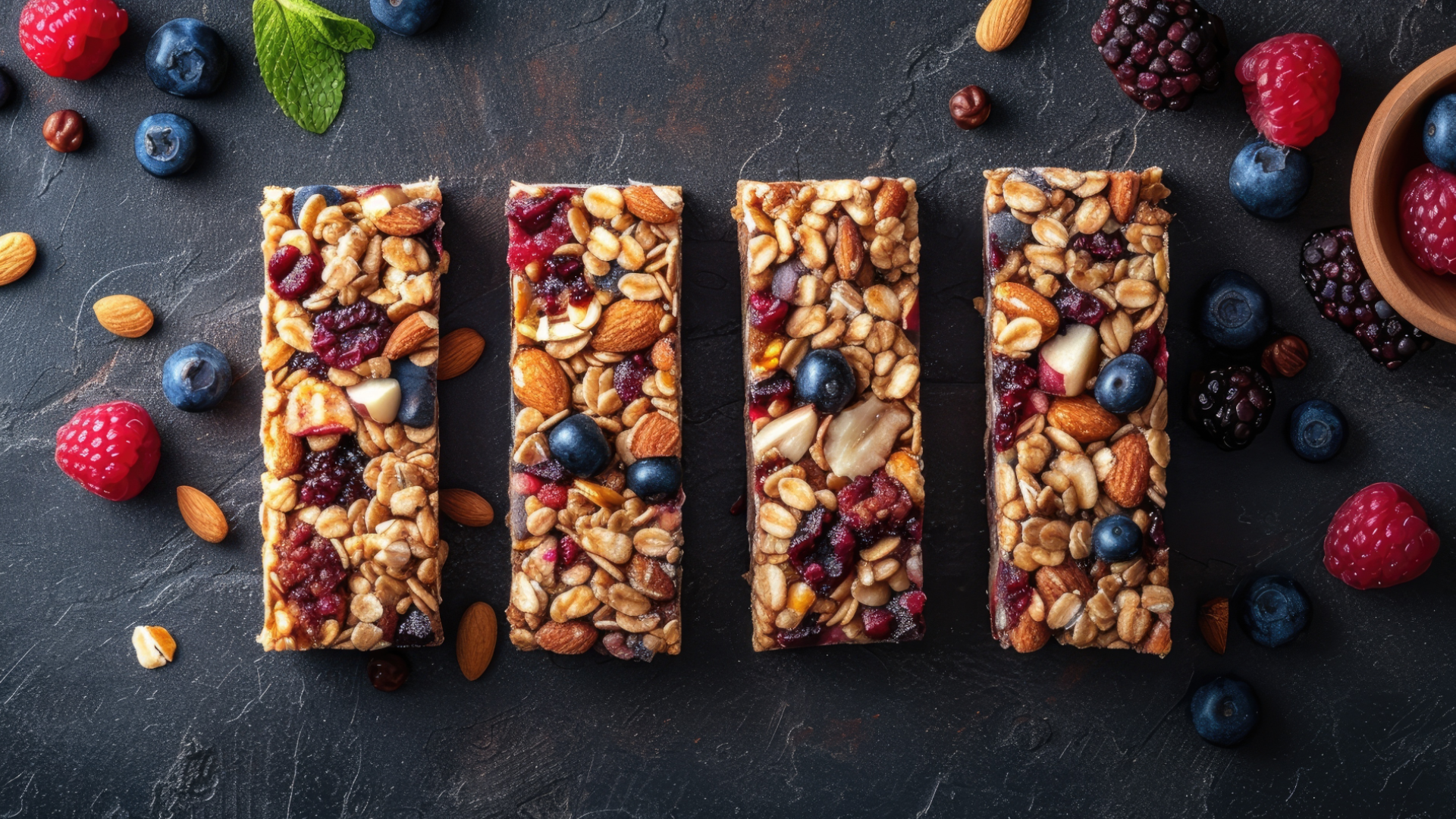Grab your cheat sheet |
Post-workout fuel is a hotly debated topic, with some athletes consuming mountains of protein very quickly after resistance training.
But is this really necessary?
Is there an optimum protein intake to ensure you build muscle?
Or should you simply eat as you can?
Just how much protein do you really need after a workout?
Why do you need protein after a workout?
While exercise builds muscle, the process of exercise initially breaks down muscle, and we need protein to build it back up. Taking high-quality protein after a workout, therefore, prevents muscle loss and will stimulate muscle protein synthesis (more on this below).
Getting adequate protein is vital for muscle recovery and muscle repair in the hours and days following a workout.
What is muscle protein synthesis?
The synthesis of muscle protein is a metabolic process triggered by amino acids. It is the opposing process to muscle protein breakdown, and in order to achieve muscle hypertrophy, protein synthesis has to happen at a higher rate than muscle breakdown.

The only way our body can accelerate the synthesis of muscle protein fast enough to sustain muscle growth is by having plenty of amino acids available to fuel this process. While our body synthesizes some amino acids naturally, there are nine essential amino acids that we can only get in our diet.
What should your protein intake be after a workout?
Studies have found that eating 20-30 grams of protein post-workout is optimal.
In fact, eating more than that in one sitting doesn’t trigger higher levels of muscle growth as it becomes difficult for our body to absorb higher levels of protein.
However, we need a lot more than 30 grams of protein each day to get optimal results. This is because our muscles need a steady supply of protein throughout the day to encourage optimal recovery and growth. This is why most dietary experts recommend that you include a protein source in every meal.
Your overall protein intake is more important than what you do in that post-workout window. If you have had a meal filled with protein an hour or two before your workout, getting protein within the first half an hour is less important. It is all about creating balance throughout your day and avoiding muscle starvation through regular protein consumption.
Track your protein daily, and aim for 20-30g within 30-45 minutes of your workout.
What about carbohydrates?
Low-carb diets?
Forget them! If you are serious about your weight training, carbohydrates are just as important as protein. You need carbs to fuel your workout and to help your body recover.

When planning your pre-and post-workout meal or snack, carbohydrates should be a bigger focus before your workout, with protein being the main priority after your workout.
How much protein do I need throughout the day?
The volume of protein you require depends on several factors, such as your age, sex, weight, the type of workout you are doing and your goals e.g., weight gain vs weight loss.
If you are an aerobic endurance athlete, you will need around 1-1.5 grams of protein per kilogram of body weight per day. You’ll also need a lot of carbs! If your main focus is strength training and building muscle, aim for 1.4-2 grams of protein per kilogram of body weight per day.
So if you weigh 80 kilos, aim for between 80 grams and 120 grams per day to support endurance training. You’ll need between 112 grams and 160 grams per resistance exercise daily.
However, if you're someone who hits the gym 8 hours per week or more, you may need even more protein than this. A better guide for those who require a high-calorie diet is to keep an eye on your macro percentages; aim towards a 30% protein intake.
How often should you drink whey protein shakes?
A daily whey protein powder shake, alongside a balanced diet, will give most people enough protein to maximize their workout. However, if you are a hard gainer (someone who struggles to gain weight) or undertaking a particularly grueling weight training program, having a second whey protein shake is perfectly safe.

If you are struggling to take in enough calories to increase your muscle mass, it may be more beneficial to have one whey protein shake along with a mass gainer shake. Mass gainer contains a mix of protein, carbohydrates and fats, and it is an easy and convenient way to increase your energy intake.
Find out more about the differences in our Mass Gainer vs. Whey Protein article.
Taking protein after a workout.
Whey protein is an easy and convenient way to make sure you get enough protein into your system quickly after a workout. If you’ve done a particularly tough workout, it isn’t unusual for you to feel like you don’t want to eat. Protein powder shakes are ideal in this instance: you definitely need the nutrition, but the shakes are much easier to stomach than a big meal.
However, a balanced meal with plenty of protein will work well if you work out just before mealtimes. Instead, you could have your protein shake as a mid-morning or mid-afternoon snack which will help curb your craving for less healthy options and ensure you hit your daily protein goals. Create a meal plan that works for you, and spread your protein throughout the day.
The best whey protein supplement?
Whey protein powder such as Crazy Nutrition’s TRI-PROTEIN formula is high-quality and provides the ideal post-workout nutrition. Our protein powder contains six natural, non-GMO proteins (including whey protein isolate) that break down in 3 phases for more energy and strength than regular whey, hemp, or soy protein formulas. It is packed full of the essential amino acids required for you to achieve increased lean body mass.



